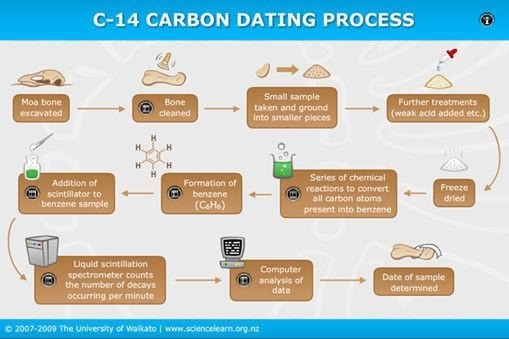Fossil Fuels May Cripple Carbon Dating Accuracy
Carbon dating may suffer drastically if pollution levels continue to rise, and the reason revolves around fossil fuel emissions. According to a recent study by Imperial College London atmospheric scientist Heather Graven, emissions could drastically "age" the atmosphere over the coming decades and make accurate carbon dating more difficult. It has been known that such emissions have a "dilution" effect, but this recent study shows how drastically.
Carbon dating looks at the radioactive carbon-14 in an object and uses that to determine how old it is. Increases in normal carbon also effects the number, however, and fossil fuel emissions — which don't have carbon-14 — are causing an increase in carbon levels. This in turn makes objects seem, through the eyes of carbon dating, older than they are.

As an example of the effects, an object in 2050 may seem the same — through carbon dating, at least — as an object that is a thousand years older. And by 2100, an object could seem the same as another object that is 2,000 or so years old.
Says the study, "At the rate fossil fuel emissions are currently increasing, by 2050 a new T-shirt would have the same radiocarbon date as a robe worn by William the Conqueror a thousand years earlier." This could be a big problem for researchers in the future, as carbon dating is used for many purposes, including things like assessing artwork, analyzing and dating historical discoveries, and more.
SOURCE: Scientific American
